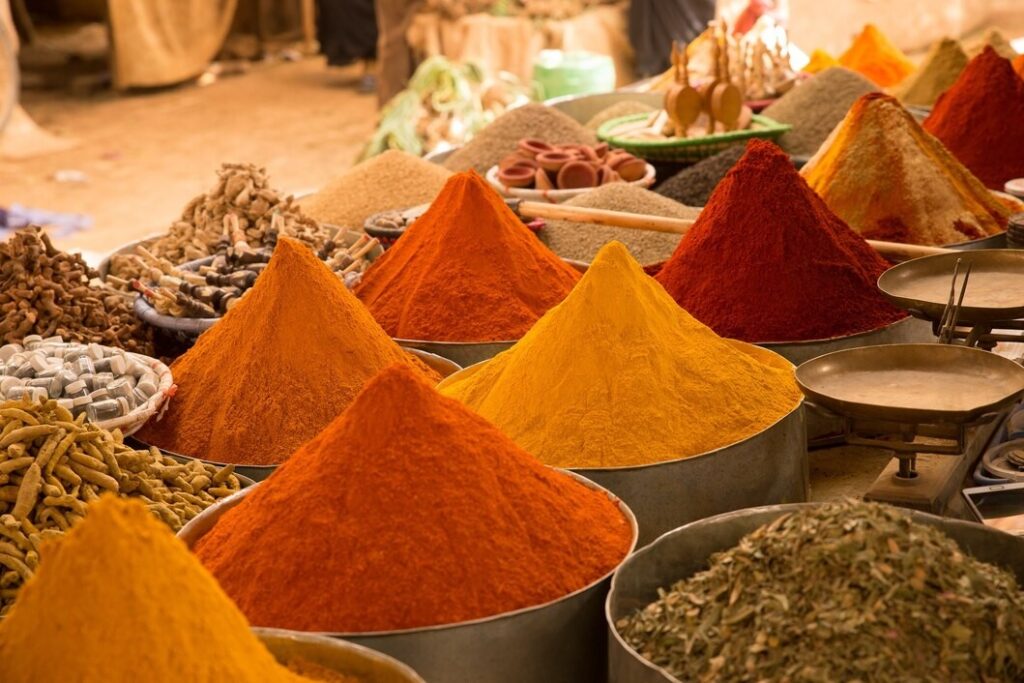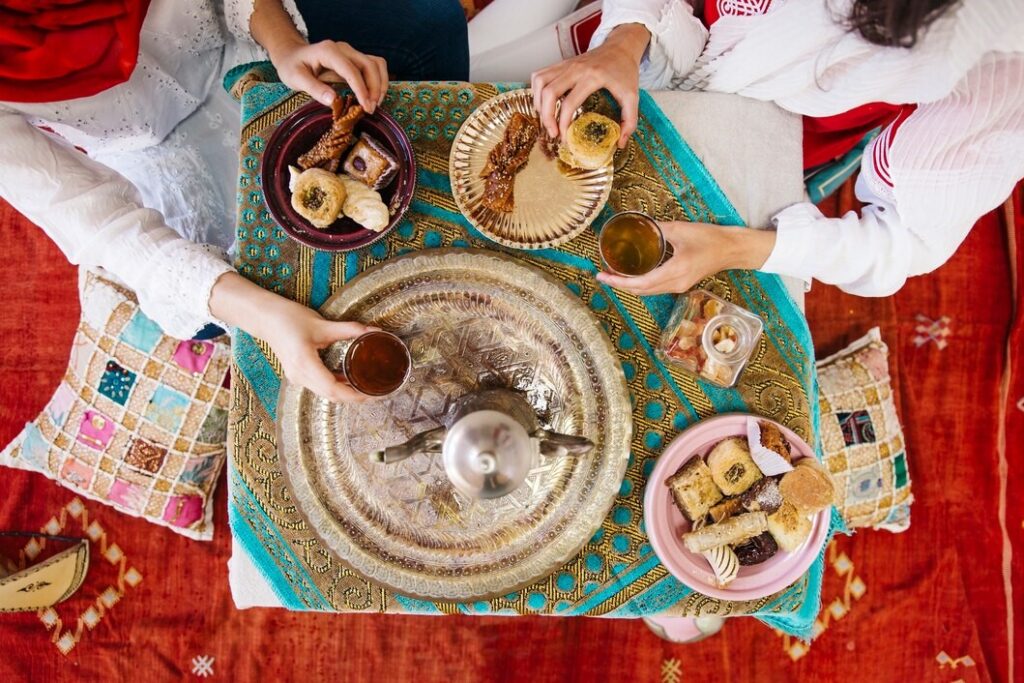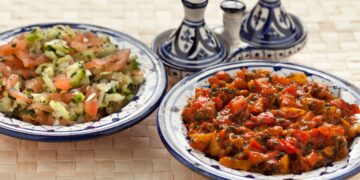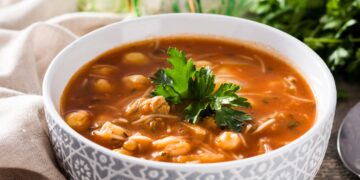Few countries evoke the sense of culinary wonder quite like Morocco. Nestled at the crossroads of Africa, Europe, and the Middle East, its cuisine is a vibrant tapestry woven from centuries of cultural exchange and tradition. Moroccan gastronomy is more than just food—it is an art form that connects people, tells stories, and celebrates the joy of living. Through the lens of its bold flavors, aromatic spices, and communal dining practices, Morocco invites us to savor life one bite at a time.
The Heart of Moroccan Cuisine
Moroccan cuisine is built on a foundation of fresh, locally sourced ingredients. From the bustling souks brimming with colorful produce to the fragrant spice stalls offering cumin, saffron, and cinnamon, every element contributes to the symphony of flavors. Signature dishes like tagine, couscous, and harira soup showcase the intricate balance of sweet and savory that defines Moroccan cooking.
“For us, cooking is not just a task; it’s an act of love,” says Fatima, a home cook from Marrakech. “When I prepare a tagine, I think of my family and how the spices and ingredients will bring them comfort. Each meal is a gift.”
The Spice Trail: A Journey Through History
One of the hallmarks of Moroccan cuisine is its masterful use of spices. The country’s strategic position on ancient trade routes introduced ingredients from around the world, such as saffron from Persia, cinnamon from Sri Lanka, and paprika from the Americas. Over time, these spices were skillfully incorporated into traditional recipes, creating the distinctive Moroccan flavor profile.
“The spices are the soul of our dishes,” says Hassan, a chef in Fez. “Each one tells a story of where we come from and the cultures that have shaped us.”

The Ritual of Tea
No exploration of Moroccan gastronomy would be complete without mentioning mint tea. Often referred to as “Moroccan whiskey,” this sweet, aromatic beverage is a cornerstone of hospitality. The preparation and serving of tea is a ritual in itself, reflecting the values of warmth and generosity that are central to Moroccan culture.
“Tea is more than a drink,” explains Amina, a restaurant owner in Rabat. “It’s how we welcome friends, family, and even strangers into our lives. Sharing tea is sharing our hearts.”
The Communal Table: A Feast for All
Moroccan dining is inherently communal, emphasizing the importance of togetherness. Meals are often served family-style, with everyone gathering around a single dish to share. The act of breaking bread—often freshly baked khobz—creates a sense of unity and connection.
“When we eat together, we share more than food; we share our lives,” says Mohamed, a father of three from Casablanca. “This is how traditions live on, through stories told over meals.”
Building Business Partnerships Through Moroccan Cultural Events
In today’s interconnected world, businesses are constantly searching for innovative ways to establish trust, strengthen networks, and expand their reach....
Hiking Trails in the Middle Atlas Mountains
The Middle Atlas Mountains are often overshadowed by the High Atlas or the Rif, yet they hold some of Morocco’s...
From Passion to Profession: Turning Creative Skills into Income
In Morocco, more young people are transforming their creative talents into careers. Whether it’s photography, calligraphy, fashion design, or digital...
Young Moroccans Abroad: Balancing Wanderlust and Roots
For many young Moroccans, the dream of exploring the world is irresistible. Whether through study, work, or travel, living abroad...
Sweets and Celebrations
Desserts play a special role in Moroccan gastronomy, particularly during celebrations. From honey-drenched chebakia to almond-filled briouats, sweets are a symbol of joy and abundance. These confections are often paired with mint tea, creating a perfect harmony of flavors.
“During Ramadan, we prepare sweets with so much care,” says Nadia, a pastry chef in Chefchaouen. “It’s a time of reflection and togetherness, and these treats remind us of life’s sweetness.”

A Culinary Invitation
To experience Moroccan gastronomy is to embrace a lifestyle rooted in flavor, hospitality, and celebration. Whether you’re savoring a slow-cooked lamb tagine, sipping a glass of mint tea, or sharing stories around a table of couscous, Moroccan cuisine invites you to connect with its rich heritage and the people who bring it to life.
“Cooking is our way of saying, ‘You are welcome here,’” Fatima adds with a smile. “And as long as there is food, there is always room for one more.”
So, take a journey through the flavors of Morocco. Let the spices awaken your senses, the warmth of mint tea soothe your soul, and the communal table remind you of the beauty of shared experiences. In every bite, you’ll discover the art of living—Moroccan style.
















Discussion about this post